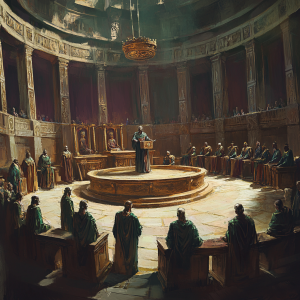How the Electoral College May Curb Election Fraud
BlueSky Thinking Summary
The disputed 2000 U.S.
presidential election has renewed calls for abolishing the Electoral College;
16 states and D.C.
have signed on to the National Popular Vote Interstate Compact, which would award electors based on the popular vote winner.
But a new paper by Kellogg's Georgy Egorov and Konstantin Sonin makes a case for the often-overlooked upside of the Electoral College: it reduces incentives and opportunities for election fraud.
They find that, comparing different voting outcomes under both systems, the state-by-state allocation of the Electoral College discourages fraud, for cases of fraud that would actually change election outcomes are limited.
On the other hand, a national popular vote system might encourage cheating in areas that have political homogeneity and weak monitoring.
While many criticize the Electoral College as not being the fairest of systems, Egorov notices that a general move to popular vote format would bring its problems and ignore the localized nature of fraud.
Thus, the argument about electoral reform at the current stage is not one of fairness but protection from manipulation in decentralizing conditions of the election system.
As calls for Electoral College reform grow louder, new research shines a light on some unexpected benefits of this most contentious institution: deterring election fraud in an era of political polarization.


